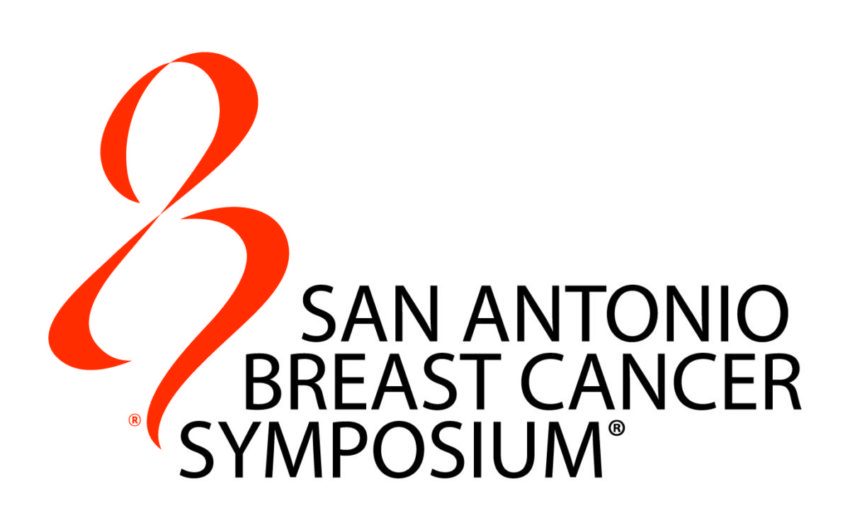SAN ANTONIO (Dec. 3, 2020) — This year’s San Antonio Breast Cancer Symposium (SABCS) will take place virtually from Dec. 8 through Dec. 11. One of the largest breast cancer meetings in the world, the four-day conference was founded and is owned and operated by the Mays Cancer Center, part of The University of Texas Health Science Center at San Antonio.
Members of the media who wish to register or to learn more about the symposium can visit sabcs.org.
This year’s conference will feature an oral presentation by Manjeet Rao, PhD, about a possible FDA-approved anti-depressant being studied that may block breast cancer growth by preventing breast cancer cells from repairing themselves.
Dr. Rao has been studying the unique ability of cancer cells to repair DNA damage caused by either unchecked growth or chemotherapy and radiation. Even though breast cancer cells can’t repair all the damage themselves, they recruit back-up DNA repair systems in the body to help damaged cells survive and continue replicating. These back-up DNA repair systems can cause previous treatments not to work if cancer returns. “Our pre-clinical and clinical data show that a drug that can inhibit the alternate DNA repair pathway signaling may promote immune surveillance, and therefore may serve as a novel treatment option for treating breast cancer patients,” Dr. Rao said.
He will be presenting preliminary results from a clinical trial that is being conducted exclusively at UT Health San Antonio to evaluate the anti-depressant drug Imipramine that may inhibit breast cancer growth by stopping the alternate repair programs. The presentation will be given during the afternoon session on Tuesday, Dec. 8, between 1 and 3 p.m.
Dr. Rao is a professor of cell systems and anatomy, deputy director of the Greehey Children’s Cancer Research Institute based in the Joe R. and Teresa Lozano Long School of Medicine at UT Health San Antonio, and is co-leader of experimental and development therapeutics at the Mays Cancer Center.
Poster sessions
A sampling of the posters offered by UT Health San Antonio faculty members are below. The posters will be available online to registered media at 8 a.m. on Wednesday, Dec. 9.
Andrew Brenner, MD, PhD, a medical oncologist and associate professor in the Division of Hematology and Medical Oncology, studies breast cancer, including breast cancer that has spread to the brain. The blood-brain barrier, a specialized rim of cells around the outside of the brain, allows nutrients in but prevents many substances from entering, including many cancer treatments; therefore, it has been difficult to treat brain tumors in the past. Scientists have been studying how to piggyback potent drugs onto specially designed molecules that are capable of entering the brain.
Dr. Brenner’s poster is based on a clinical trial conducted only at the Mays Cancer Center that evaluated the ability of an FDA-approved antibody called sacituzumab govitecan (SG) to carry a highly potent chemotherapy drug, SN-38, to the tumors without injuring healthy tissue.
He tested this theory in two groups of patients: one group of 11 patients with highly aggressive triple-negative breast cancer that had spread to the brain, and a second group of 10 patients with glioblastoma, another form of aggressive cancer that originates in the brain or spinal cord. After receiving an initial dose of SG carrying SN-38, both sets of patients had tumors surgically removed for analysis.
Early results showed that most patients with metastasized breast cancer showed improvement, while all glioblastoma patients still showed some measurable disease. Final results of the trial will be revealed in the poster session.
Patricia Chalela, MPH, DrPH, is an associate professor in UT Health San Antonio’s Institute for Health Promotion Research. She is working on a smartphone app to encourage patients to continue using hormone therapy, which has been proven to contribute to the reduction of recurrence and death from breast cancer long term, as high as a 50% reduction into the second decade after breast cancer diagnosis.
The purpose of her app is to promote continued adherence to hormone therapy among breast cancer patients while increasing patient education, enhancing self-efficacy, facilitating communication with the medical team and helping patients develop self-care skills to promote optimal adherence to hormone therapy.
Virginia Kaklamani, MD, is a professor and leader of the breast cancer program at the Mays Cancer Center, and one of three co-leaders of the SABCS. She has been studying new ways to classify subtypes of triple-negative breast cancer.
“We evaluated the relationship between the tumors’ unique gene expression signatures to the known tumor subtypes using a tumor characterization tool called BluePrint,” she said. The new technology describes the “chain reaction” of chemical processes within the tumor to more specifically characterize the tumor. “These data suggest that molecular classification by BluePrint adds further precision in classifying triple-negative breast cancer in patients and sheds new light on the differences among these tumors,” she said. This information is valuable to cancer physicians in matching the tumor subtype to the most effective treatment.
Kate Lathrop, MD, breast medical oncologist and associate professor of medicine at the Mays Cancer Center, also is studying triple-negative breast cancer. In collaboration with Ausio Pharmaceuticals, she is exploring a new oral medication that targets the cancer’s estrogen beta receptor. This medication, S-equol, was given to women with triple-negative breast cancer for two to three weeks.
“Tumor samples from before and after taking the medication were compared, and on average, the speed of tumor growth was decreased. This is encouraging as there are relatively few treatments for triple-negative breast cancer,” Dr. Lathrop said. The medication was well tolerated and had few side effects. Additional studies are currently being planned for S-equol, she said.
# # #
The Mays Cancer Center, part of The University of Texas Health Science Center at San Antonio, is one of only four National Cancer Institute-designated Cancer Centers in Texas. The Mays Cancer Center provides leading-edge cancer care, propels innovative cancer research and educates the next generation of leaders to end cancer ihttps://https://cancer.uthscsa.edu/n South Texas. Visit cancer.uthscsa.edu.


